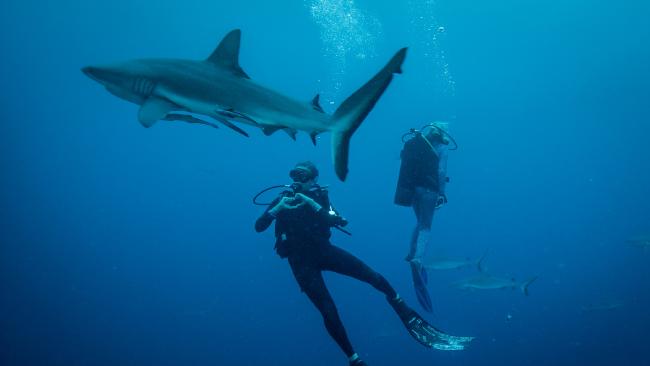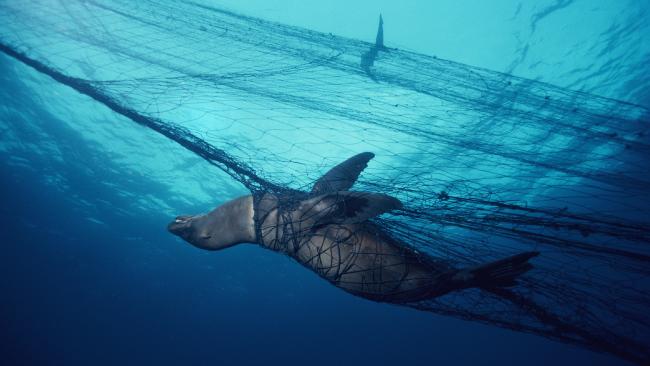Released earlier this week, Blue is an Australian-made documentary covering humanity’s impact on our big beautiful blue ocean. At only 113 minutes long, the production team got this documentary just right, combining stunning global seascapes with poignant narration from those who have witnessed first-hand the consequences of human consumerism on ocean ecosystems.
We are taken to various places around the globe, each location with a new narrator offering insight into another unexpected consequence of our modern lifestyle. Through these excursions to different places, the film manages to present the impacts of overfishing, plastic use, coal mining, greenhouse gas pollution, climate change and more on our ocean in a very clever, understated way. Instead of attacking each issue, Blue more so explores the relationship between human and animal life and the ocean – less explored than outer-space and yet the foundation of life on our planet. Blame is shifted from the very beginning as we witness Indonesian shark fishing trades that from one perspective fish exorbitant numbers of sharks just for their fins but also support entire villages – shark fishing is the economic foundation of the villagers lives without which they would live in poverty. This challenging dichotomy is presented again and again, asking us to consider how different populations rely on the ocean and the lack of global communication for the common goal of sustaining its health.

The narration is simple and unpretentious without too many hard-hitting facts, and at points is very effective at pre-empting our thoughts about each of the issues. Complementing this are the visuals and music, which are especially powerful in transition shots between stories, where each narrator is discussing their content in greater depth. This is where we see majestic sweeping shots of both natural beaches and industrial ports emphasising the scale of the issues presented, or a series of closer quicker shots on plastic production or just a soothing compilation of really pretty underwater visuals. This variety of visuals reflects the content of the film itself – it strikes a balance of exploring the ocean’s majesty and vulnerability to human exploitation. The skill in crafting Blue is evident – it is little surprise to find the film was produced as a passion project by some of Australia’s most experienced and talented writers, editors and filmmakers.
Instead of us against them, Blue presents humanity’s multifaceted impact on the ocean as a two-way street – the ocean has done so much for us, now it is time to return the favour. It is a simple call for action without the normal ton of guilt tripping. This is why I believe it is such a successful documentary – whether or not you care about overfishing or coral bleaching or the declining diversity of our marine life, Blue offers unseen perspectives that we all should be aware of. It may shock or surprise, but whatever action it inspires within each viewer, it removes some of our blindness to our global collective impact on the ocean, which should weigh on our conscience but hasn’t.
We have grown up in Australia with our culture entrenched in beach life and the sea, and in our generation, have experienced an abundance of fish species and populations that no human generation may ever see again. I had always considered the ocean as resilient, this enormous insurmountable mass capable of fixing itself and re-establishing equilibrium. This subconscious view only surfaced and was questioned upon watching the documentary. The ocean IS fundamentally changing – it is estimated that by 2050 there will be more plastic in it than fish.

Helping reduce humanity’s impact on the ocean is a collective and generational cause, needed to sustain human life in the long-term with economic implications on the horizon. If we don’t become aware of this reality now, it is difficult to comprehend what the climate and agricultural landscape of the planet will become for future generations.
I don’t want to give everything away, but I can say that it balances doom and gloom with a positive outlook in changing our mindsets and moving forwards. Highly HIGHLY recommend a watch.
If you want to know what sea birds and turtles could possibly have to do with overfishing and plastic, then check this out. Or if you are trying to adopt more sustainable habits but need some motivation, check this out. Or if you just want a really good example of how to successfully film, script and edit a documentary for a pleasant and thought-provoking cinema experience, then CHECK THIS OUT.
Blue the film is currently in selected cinemas.
